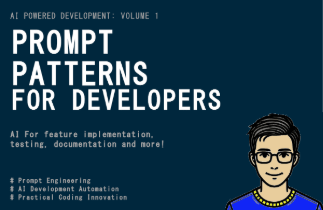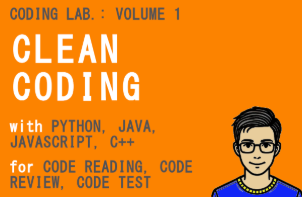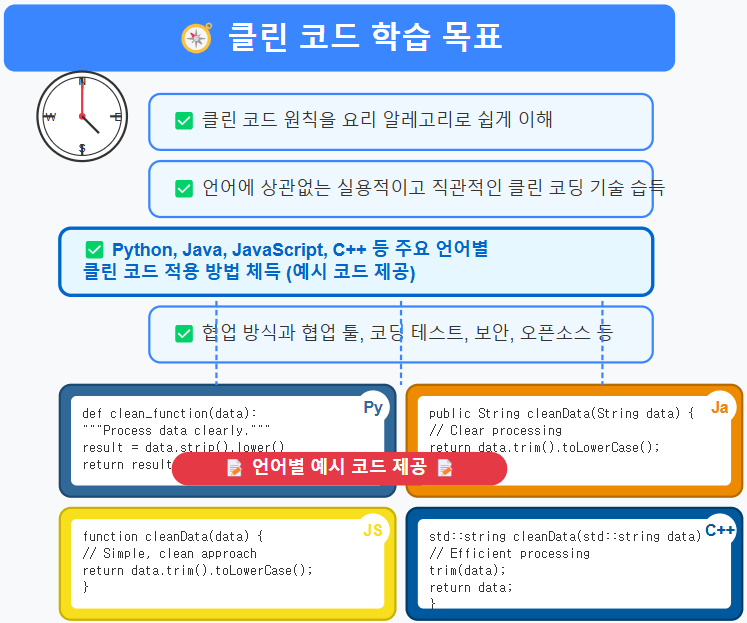
Prompt Patterns for Developers (Vibe Coding)
arigaram
Now is the era of development using AI. To create better, more accurate code and documents by better utilizing AI, methods are needed, so we propose suitable ones.
초급
prompt engineering
👨🍳 Like cooking code, neatly and deliciously! 『Clean Coding』 is a code cooking class for chef-like developers, where they joyfully learn clean coding through a cooking analogy. 🍽️


Practical Task: Clean Refactoring of Smelly Legacy Code
Domain Language-based Naming Strategy and Documentation Skills
Collaborative API Design and Ubiquitous Language Establishment
TDD, Test Coverage Analysis, Automated Test Structuring
Problem-solving-centric Clean Code Mindset
Manners, Toolset, Contribution Methods for Open Source Project Participation
I am currently in the process of completing this course. I plan to gradually adjust the price as I complete the course. Therefore, those who purchase earlier can buy it at a relatively lower price, but they will have the disadvantage of having to wait longer until the course is fully completed (although I will continuously add supplementary content). Please consider this when making your purchase decision.
September 23, 2025
I've made the lesson outlines for the previously private sections public again. I'm currently filling in the content.
August 31, 2025
[Basic] Sections (Sections 1 ~ 16) have been completed.
August 22, 2025
I've made the 'bonus' sections corresponding to [Advanced] (sections 17-23) private. I'll make them public again section by section after completing the content.
This course is a journey to learn the principles of 'Clean Code' through fun and vivid analogies, comparing code to cooking and developers to chefs. In this process, you'll also learn related concepts and techniques such as collaboration tools, coding tests, and refactoring.
Function = Recipe
Variable = Ingredient
Module = Menu Configuration
Coding Test = Hygiene Inspection
Code Style = Plating
Collaboration = Kitchen Teamwork

Understanding Clean Coding Principles Through Cooking Analogies
Acquiring practical and intuitive clean coding techniques regardless of programming language
Mastering clean code application methods for major languages including Python, Java, JavaScript, C++, etc.
Improving practical skills across all aspects of development including collaboration, collaboration tools, coding tests, refactoring, security, open source, and more
Culinary Universe: Immersive worldbuilding centered around cooking, kitchens, and restaurants
Chef's Commentary: Explaining code examples through cooking processes
Language-Specific Improvement Code: Before/After Code Comparison (Python, Java, JS, C++)
Quiz: Chef's Hygiene Inspection! Includes Concept Review Quiz
Hands-on Assignment: Learning Clean Code by Actually 'Cooking'
Section 1. The Art of Preparing Materials — The Beginning of Good Variables
Section 2. The simpler the recipe, the more delicious it is — Function Design
Section 3. Kitchen Flow and Menu Composition — Modularization and Structure
Section 4. Automate Repetitive Recipes — Eliminate Duplication & Abstraction
Section 5. Passing Hygiene Inspections — Testing and Quality
Section 6. Recipe Commentary Only as Needed — Comments and Documentation
Section 7. Teamwork Among Chefs — Collaboration and Code Review
Section 8. Let's Reduce Kitchen Accidents — Exception Handling and Error Response
Section 9. The Craftsman Who Sharpens Their Tools — Tool Utilization and Automation
Section 10. A Chef Who Lives Up to Their Name — Naming Conventions and Domain Language
Section 11. A Table Full of Code — Interfaces and APIs
Section 12. Kitchen Renovation — Refactoring in Practice
Section 13. Traces of a Bad Chef — Code Smell Detection
Section 14. Think About the Customer's Perspective — Security and User Considerations
Section 15. Open Kitchen — Code Disclosure and Open Source Etiquette
Section 16. The Chef's Growth — What is Good Code?
Section 17. [Advanced] Sustainable Kitchen — Performance and Optimization
Section 18. [Advanced] Kitchen Crisis Management — Debugging and Problem Solving
Section 19. [Advanced] The Philosophy of Cooking — Design Patterns and Principles
Section 20. [Advanced] Future Kitchen Technology — Latest Technologies and Trends
Section 21. [Advanced] Legacy Kitchen Renovation — Improving Existing Code
Section 22. [Advanced] Kitchen Sustainability — Maintenance-Friendly Code
Section 23. [Advanced] Multicultural Kitchen — Integrating Various Languages and Technologies
Improving Team Code Review Skills from a Clean Code Perspective
Faster and more stable code writing
Open source, collaborative project contributions possible
Clean Code-Based Design Capability Enhancement
Growing into a developer with the refined sensibilities of a chef!
"Good cooking moves people, and good code makes developers admire."
In this course, learn how to cook your code.
Basic understanding of at least one language among Python, Java, JavaScript, C++
A notebook for remembering what should be remembered
Beginner to Intermediate Developers
Those who have struggled with readability and quality issues during collaboration
Teams/developers who want to apply clean coding in practice
Intern/junior programmers encountering code review for the first time
Who is this course right for?
👨🍳 Junior developer who keeps feeling their code is lukewarm
📦 Working Developer Shy of Refactoring and Testing
🔍 Team leader or code reviewer with ambiguous Clean Code standards
Need to know before starting?
Basic understanding of programming syntax (one or more of Python, Java, JavaScript, C++)
Familiarity with basic concepts such as functions, variables, classes, and conditional statements.
Simple project or assignment implementation experience
Basic usage skills for code execution environments (IDE, terminal, build tools, etc.)
392
Learners
19
Reviews
1
Answers
4.6
Rating
17
Courses
IT가 취미이자 직업인 사람입니다.
다양한 저술, 번역, 자문, 개발, 강의 경력이 있습니다.
All
160 lectures ∙ (38hr 48min)
Course Materials:
All
1 reviews
Limited time deal
$58.30
24%
$77.00
Check out other courses by the instructor!
Explore other courses in the same field!